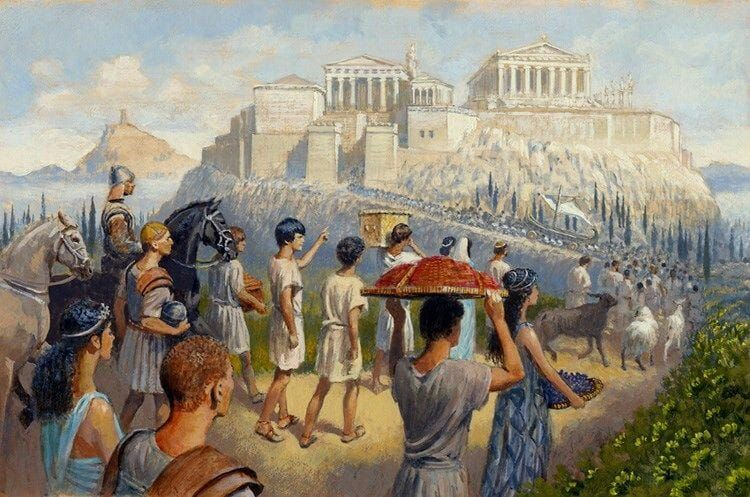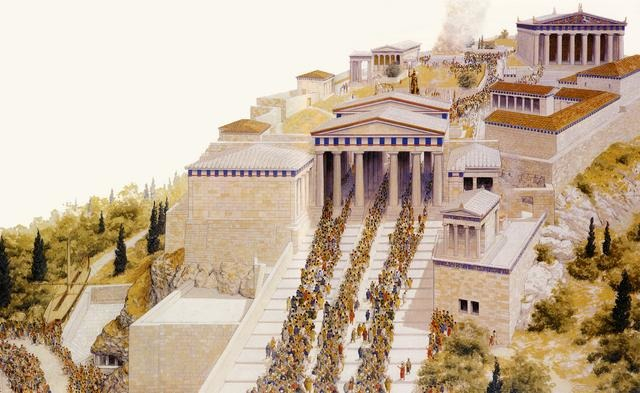The Panathenaia Festival Was Held In Her Honor

The Panathenaia celebration was held in Ancient Greece. From 566 BC through the third century AD, the Panathenaic Games were staged in Athens every four years. These Games featured religious celebrations, stadium-hosted stadium competitions, ceremonies (including award ceremonies), and cultural events.
The Great Panathenaia itself was a considerably larger religious event than the competitions for which this festival became famous. Numerous sacrifices were made to Athena, Poseidon, and other deities as part of these religious observances. The Panathenaic celebration was established to celebrate the goddess Athena, who had been chosen as the city of Athens' patron after competing against the deity Poseidon to win the people's favor by giving them gifts. The celebration would foster harmony among Athens' citizens.
The festival also featured notable athletic competitions. The celebration featured contests of strength and finesse to commemorate the Greek Goddess Athena, who was noted for being a very athletic woman with considerable strength in combat. Competitions in poetry and music were part of the cultural activities. The games were held in the Panathenaic Stadium. Panathenaic Amphorae, sizable clay containers that held olive oil, were awarded as prizes to the winners. The Olympic Games, which were a competition between the many city-states, were more significant than the Panathenaia, which was the most significant event for the Athenians.











